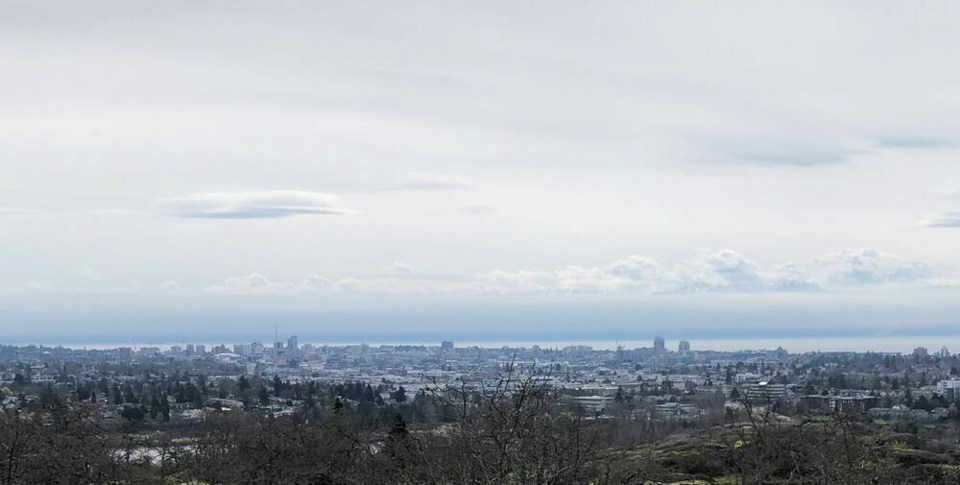Why should we pay a percentage of our property tax to local First Nations?
In the now overused reference to the works of the Truth and Reconciliation Commission, when property owners in Victoria choose to pay a percentage of their annual property taxes to the local First Nations, they enact the core meaning of what is intended in the word ‘reconciliation’.
That commission worked assiduously between 2008 and 2015, documenting the horrors of one of Canada’s federal programs: the Indian Residential Schools. A shameful program that was only dissolved in 1996.
Core to the work of the Commission was an important idea: to invent a new future based on ‘truth’. Some ‘truth’ has already surfaced, such as the association of the Catholic church with this program, as well as the abhorrent treatment, and deaths, of innumerable children in its care.
So much more needs to be done about ‘truth’. In education for instance, do many non-Indigenous people around Victoria, know how to say the word W̱SÁNEĆ correctly? (‘W’ is a silent ‘wh’.)
Who knows where Sitchanalth is located? (It’s Willows Beach). This will be in the works for years to come.
‘Reconciliation’ is the other word referring to the ground-breaking works of this commission. It is a word used in political rhetoric that recently has appeared in a multitude policy discussion and by policy makers in many governments at the local, provincial and federal levels, but really, making very little meaningful progress.
Indeed, how much progress are we making collectively when we do not share public resources, such as taxes, more effectively?
In 2008, the National Centre for First Nation Governance asked for a report on First Nations’ Fiscal Environment.
At the time, it was staggering to discover a tax system that treated Indigenous Nations as incapable of any good management of public funds and requiring a form of tutelage so oppressive that reporting on the usage of public funds took more time than implementing the policies those resources were funding.
Imagine my surprise, at the time, a new migrant, a new British Columbian settler, I had just returned from an Okanagan vacation and discovery of the outstanding Nk’Mip winery where a community of 500 makes wines that are the envy of the world. The shock was brutal: When thinking about Indigenous communities, Canada, an otherwise modern country, still had 19th century policies and regulations.
So, why should we pay a percentage of property taxes to local First Nations?
Should we pay because it is retribution for 200 years of brutal colonization? No, because retribution should account for each one of those years and is immeasurably more complex.
Should we pay because early settlers and contemporary governments never managed to agree to a treaty? No, such treaties have been in the making for generations in most of British Columbia and at this time remain at dead-ends.
Should we pay because we are living on their unceded traditional territories? Yes, living on the unceded traditional territories of the Songhees and Esquimalt in Victoria has a cost.
That cost, the property tax is computed from something called the mill rate. It is paid to City Hall by all property owners.
The rate is calculated as a dollar portion of the market value of a property, i.e. a dollar value for each $1,000 in property value.
In Victoria, because the city is well managed, this mill rate has been going down yearly since 2016, when it was $4.2746/$1,000 in value. Today, it stands at $3.2209/$1,000.
If a property market value is $500,000, the tax is $1,550 annually. Contributing a percentage of that payment to local First Nations would add 10 per cent per year, i.e. a mill-rate increase from $3.2209 to $3.5209 per $1,000 of property value or an additional $150.05.
If half of all Victoria homeowners (25,000) voluntarily paid this tax, based on a home value of $500,000 this would result in an additional revenue of $3.7 million for the local First Nations to split.
It is a small individual contribution that would add greatly to local First Nations’ much-needed revenues in areas that are typically underfunded.
Most importantly, it would endorse our collective determination to build a common future on a new key, namely based on sanctioned reconciliation.
Emmanuel Brunet-Jailly, a professor, and Mason Ducharme, a Ph.D. candidate, both work at the School of Public Administration at the University of Victoria. They are researching fiscal relations in post truth and reconciliation countries.



